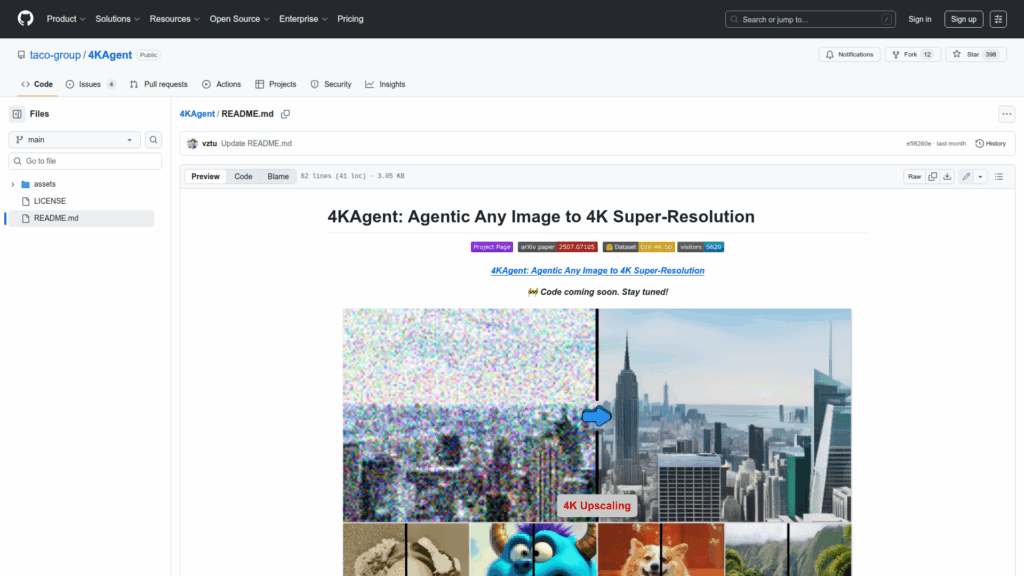4KAgent
Basic Information
4KAgent is an agentic image super-resolution framework designed to universally upscale any input image to 4K resolution. The project aims to handle a wide range of image categories and degradation levels including classical and realistic degradations, extreme low-quality inputs, AI-generated imagery, remote sensing, microscopy, and biomedical images. It describes a multi-agent system architecture with a Perception Agent that analyzes content and distortion and a Restoration Agent that executes recursive restoration plans with execution, reflection, and rollback. The repository also introduces a Quality-Driven Mixture-of-Expert policy, a face restoration pipeline, a Profile Module for adapting the system to different restoration tasks without extra training, and a DIV4K-50 dataset for evaluation. The README references an accompanying research paper and notes that code is coming soon.








